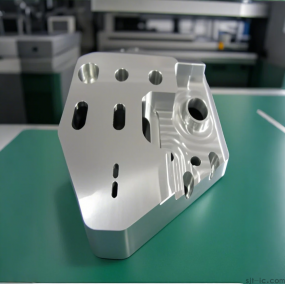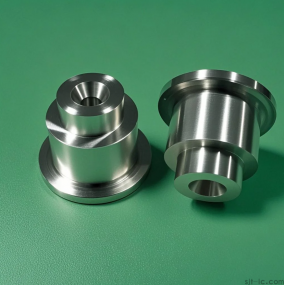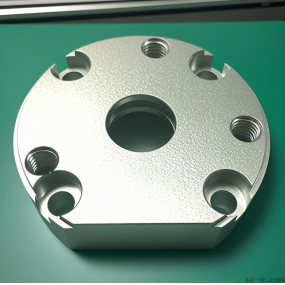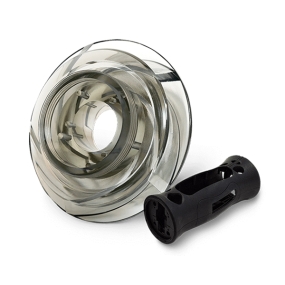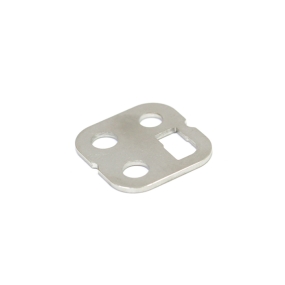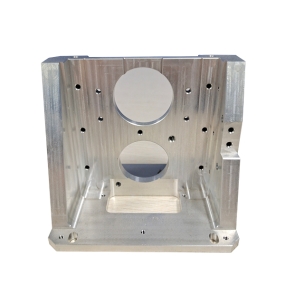Many friends feel overwhelmed at the mention of "CNC Machining". They think it involves both programming and machine operation, so it must be really difficult, right? 😅 Actually, this thing is not as scary as you imagine! Today, I will talk to you about how long it actually takes to learn CNC with zero foundation, and whether it is difficult to master~

🤔 For learning CNC with zero foundation, where does the time go?
In fact, there is a huge difference between learning with a mentor and self-study entirely! If someone teaches you hand - in - hand, you can master basic operations in 1 - 4 weeks, such as reading simple drawings, tool setting, and starting machining. But if you explore on your own, it may take you a month just to understand the coordinate system and tool setting.
👉 Time reference for key stages (practicing 1 - 2 hours a day):
- Introductory operation: About 1 month (able to operate the machine safely and process simple parts)
- Independent programming: Another 2 - 3 months (master G - codes and process formulation)
- Skilled handling of complex parts: More than half a year (such as parts with curved surfaces or multiple processes)
🛠️ Is CNC technology difficult? It mainly depends on these 3 points!
1. Programming logic: CNC programming uses G - codes and M - codes. For example, G01 controls linear cutting and M03 starts the spindle. At first, you may feel confused when memorizing the commands, but if you practice more with simulation software (such as Swo CNC Simulation), you will gradually get the hang of it~
2. Process understanding: This is the real difficulty! You not only need to know how to write codes, but also understand tool selection, cutting parameters (spindle speed, feed rate), and material characteristics. For example, when processing stainless steel, you need to use cemented carbide tools; otherwise, the tools will wear out in minutes~
3. Problem troubleshooting: Issues such as over - tolerance, tool collision, and alarms are common during the machining process! Only when you can solve these problems quickly can you be considered truly proficient. For example, adjusting tool compensation, replacing tools, and checking program coordinates.
📊 Self - study vs. Training: Which is more suitable for you?
| Learning Method | Time Cost | Advantages | Suitable Crowd |
| ---- | ---- | ---- | ---- |
| Systematic Training | 3 - 6 months | Someone corrects mistakes, helps avoid pitfalls, and the learning progress is fast | People with zero foundation who want to find a job efficiently |
| Self - study | 6 months - 1 year | Flexible time and low cost | People with mechanical foundation who like to explore on their own |
💡 Blogger's suggestion: If you have absolutely zero foundation, it is best to find a reliable training institution or a mentor to teach you! After all, operational safety is very important, and with guidance, you can avoid many detours~
💪 Editor's experience: Persistent practice is more important than talent!
In the final analysis, CNC technology relies on hands - on experience and accumulation. For example, the "fine - tuning feel" during tool setting and judging whether the cutting sound is normal all depend on repeated practice.
✅ Tips for beginners to speed up learning:
- Touch the machine every day: Even if you only practice tool setting or simulation for half an hour, it is more effective than practicing once a week;
- Process more parts of different types: Start from simple shaft - type and plate - type parts to those with grooves and holes, and accumulate experience in different scenarios;
- Keep a machining log: Record parameters, problems, and solutions. Gradually, you will form your own process database!
In fact, CNC is not as difficult as the legend says. The key is to have patience and interest~ If you are willing to calm down and practice, you can operate independently in about half a year! 🚀
Do you want me to sort out a CNC Zero - Foundation Learning Weekly Practice Plan? It will help you reasonably arrange learning content and progress, and make your CNC learning more efficient.


 Spanish
Spanish Arabic
Arabic French
French Portuguese
Portuguese Belarusian
Belarusian Japanese
Japanese Russian
Russian Malay
Malay Icelandic
Icelandic Bulgarian
Bulgarian Azerbaijani
Azerbaijani Estonian
Estonian Irish
Irish Polish
Polish Persian
Persian Boolean
Boolean Danish
Danish German
German Filipino
Filipino Finnish
Finnish Korean
Korean Dutch
Dutch Galician
Galician Catalan
Catalan Czech
Czech Croatian
Croatian Latin
Latin Latvian
Latvian Romanian
Romanian Maltese
Maltese Macedonian
Macedonian Norwegian
Norwegian Swedish
Swedish Serbian
Serbian Slovak
Slovak Slovenian
Slovenian Swahili
Swahili Thai
Thai Turkish
Turkish Welsh
Welsh Urdu
Urdu Ukrainian
Ukrainian Greek
Greek Hungarian
Hungarian Italian
Italian Yiddish
Yiddish Indonesian
Indonesian Vietnamese
Vietnamese Haitian Creole
Haitian Creole Spanish Basque
Spanish Basque

